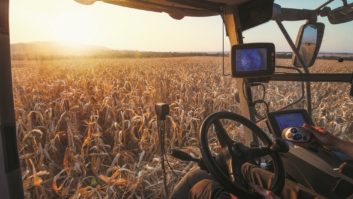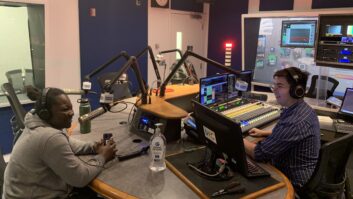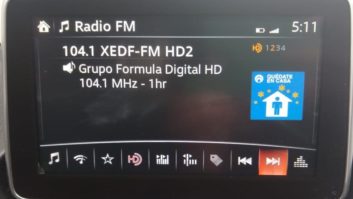Paul McLane’s editorial “Your Station Can Be the Hero” (Oct. 20) was spot-on.
I’ve been in radio since I was 16 years old, starting at WJER(AM) in Dover-New Philadelphia, Ohio. Back then most stations actively participated in relaying any emergency announcement that affected a community or area. Even WJER had a generator and was able to maintain air when everything else went down. Of course, 1980 didn’t have the Internet or other instant communications we have today.

As time has gone by, I’ve worked for many radio and TV stations; and I see fewer generators, more automation and less attention to relaying information about even severe weather. Sadly, many stations have become jukeboxes (or automated video server systems, in the case of TV). And many stations I’ve seen do not have any generators or UPS systems.
As I continue to reinforce in management, we as broadcasters still have the opportunity to make ourselves relevant, even life-saving, to our listeners.
Fine line
The time will come quickly — some of the technology is already here — when personal communications methods and the Web will be able to localize information to people within a geographic area. When this happens, that fine line between “community-oriented” and “able to deliver community information” will go away.
Cable TV for years has been inserting local information within national programming via automation. Certainly we’ve done that in radio since its inception. An audio stream from, say, the U.K. could soon be interrupted by local information. It’s really just a matter of time.
Local information might be cut into any stream from any Webcaster through a sort of “local portal.” This would allow the user (based on geographical location) to receive relayed local information, commercials or emergency alert information. It might even redirect to a local advertising broker that inserts this info and returns to the Web steam without any user intervention (with payment made to whoever’s stream was “spliced” with local info). If that stream is coming over a Web-based car radio or smartphone, and the same local information is cut in automatically (based on location), they’ve provided the same life-saving information as your radio station does … or should.
If anything, think how more accurate a GPS-based receiver will be at receiving specific area information. If a tornado were spotted at a specific location, a Web-based car radio could alert all radios within two or three miles of that location, telling people they’re in a critical area. That’s something we can’t do in traditional radio … yet.
It’s really a no-brainer: For radio to remain relevant, we must focus on a community. Recent Radio World articles have included focus on localism, and again these are spot-on correct.
Many formats (coming from big group stations) push “we’ve got all your favorite music.” And they do have a lot. But I have a radio station, music formatted, that has every single song I like, and it’s called “my MP3 player.” Being a former radio jock, I have a library of about 15,000 songs (far above most, if not all, radio station rotations).
The big difference though is that a radio station can tell me about a traffic jam, community event, how a song ties into a local person or event … you know the routine here. I can beat any song any station plays with my own “radio station MP3” — but I couldn’t touch that information, or the DJ’s personality.
Of course, that’s only if the station is doing anything more that a bunch of back-to-back songs (with me really liking maybe one out of every four or five, even within a tight format).
Yet we have many stations saying “music … music … music … and only a few commercials.” Well, I can live with the commercials, as long as you aren’t running four-minute stop sets of spots; and I do like hearing a well-informed, funny or interesting jock, as long as you aren’t rambling, irrelevant or self-serving. The key to the success is localism!
This goes hand in hand with Paul’s editorial. Traditional radio likely will see great erosion to Web radios if we don’t refocus on local and topical. It’s a mindset.
EAS messages are critical (this is when we can be playing our best game and truly making a real difference). And oh yes: I think radio stations should be required to have working generators and backup systems. Even major-market stations I’ve been in don’t always have generators or UPS systems. Power down, they’re off.
Adaptation, evolution and invention with the focus on localism will be the keys to our future success.
Dan Slentz, former vice president of technology and broadcast operations at noncommercial KERA(TV/FM) and KKXT FM, Dallas, also has worked as a radio programmer and on-air personality at radio stations in Ohio and Colorado, and at Armed Forces Radio & TV Madrid, Spain. He is an occasional contributor to Radio World.












